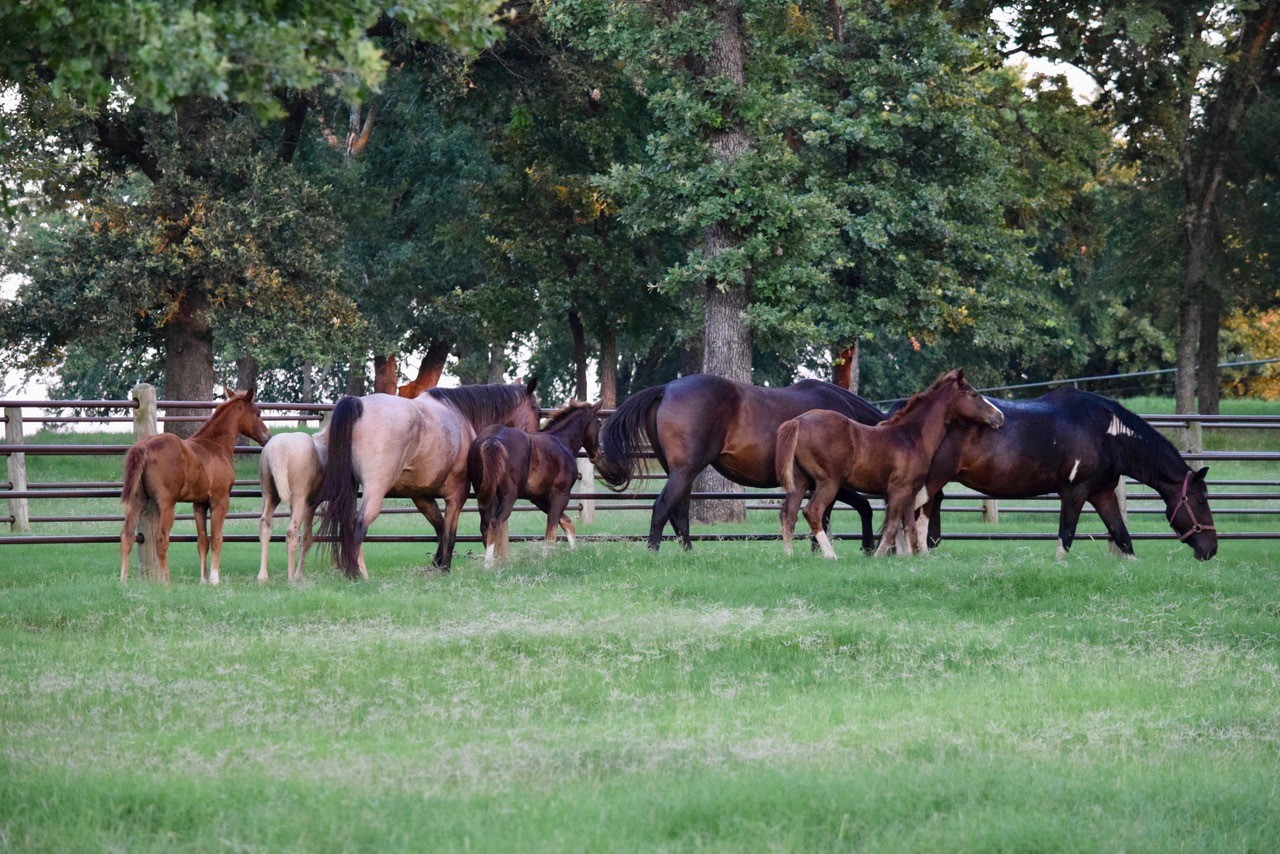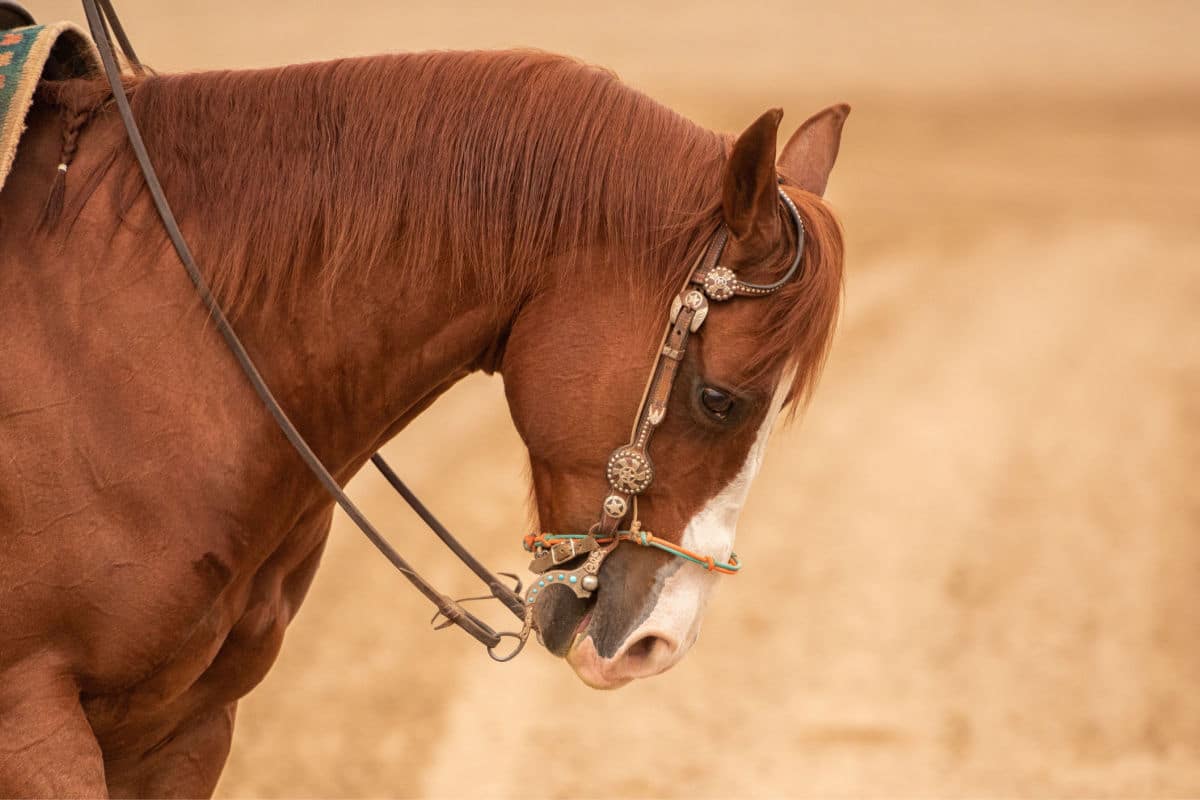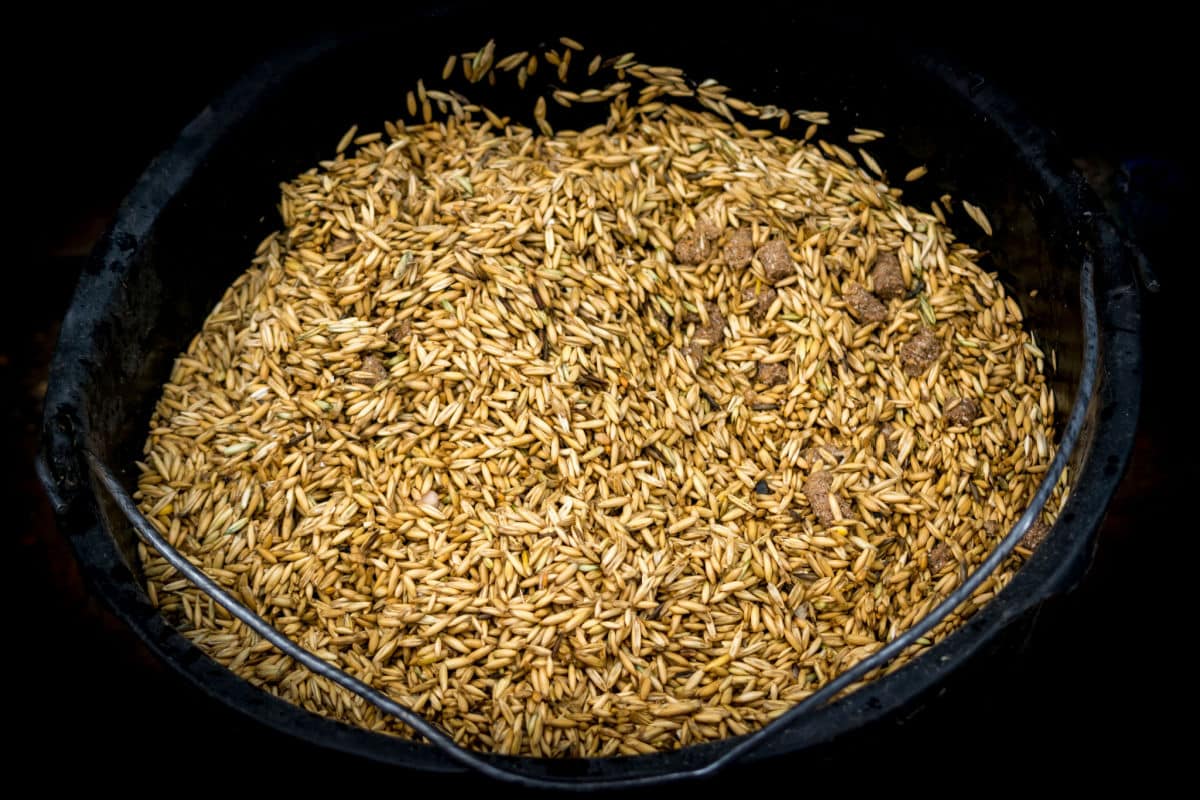Traveling is often hard on horses. Horse owners do their best to mitigate these factors with careful preparation before a trip — but very few trainers look forward to shipping a horse.
Many horse owners try to counteract the impact travel has on their horses by giving them an extra serving of grain or double-feeding leading up to the trip. The theory is that the extra carbs will help the horse recover faster at its destination…but is it doing more harm than good?
Here’s why feeding extra grain leading up to travel isn’t a good idea — and other strategies that can help your horse recover faster after traveling.
The Connection Between Travel and Impaction Colic
A horse that doesn’t travel well will often react by refusing food or water. And that’s a problem for an animal that is designed to eat a slow and constant diet of forage and drink 5-10 gallons of water per day.
It’s not too unusual for horses to become dehydrated during transport, but when a horse has been given a larger-than-normal feeding of grain before travel, dehydration becomes a major issue. Water helps horses avoid impaction colic, caused when sand, dirt, feed or other indigestible material blocks the colon. In addition to the impaction risk, overly large grain feedings put the horse at risk of digestive imbalance, hindgut acidosis, colonic ulcers, and more when undigested starch reaches the hindgut.
Either way, giving a horse extra feed, and then putting that horse in a situation where it’s less likely to drink, is a bad combination.
Start With a Healthy Horse
A basic principle of horse travel is “sick horse on, sicker horse off.” Giving extra feed is a well-intentioned idea to help a horse travel better — but in reality, there are better things to do before transporting your horse.
First, start with a healthy horse. That means adequate shelter, constant access to fresh water, and a safe and appropriate diet. Horses’ digestive systems are designed to take in forage on a near-constant basis — but at a slow rate. A healthy digestive system goes through a complex process that is disrupted by large dumps of the simple carbohydrates — sugars and starches found in most processed grains. Too much grain can lead to digestive imbalance, hindgut acidosis and compromised nutrient absorption — things you definitely don’t want to be dealing with on the road or upon arrival.
Feed Forage and Prioritize Hydration (and Not Just Before a Trip)
Hay, chaff, beet pulp and grass all help horses’ digestive systems process efficiently. That’s because the fiber in these forages breaks down slowly in the hindgut, allowing all of their nutrients to be absorbed by the colon. Feeding forage frequently throughout a long trip can also help a horse recover faster. Just be sure that dust particulates from the forage aren’t making the interior of the trailer or stall dusty, as inhaling particulates can be damaging if the horse can’t lower his head to expel the dust.
Access to fresh, cool (but not freezing-cold) water is crucial. Most vets recommend stopping at least every two hours on a long trip to offer water. It’s also a good idea to take enough water from the horse’s home farm along on the trip, and to provide the buckets he’s used to. Provide hindgut support to ensure your horse arrives healthy and happy.
Feeding a double ration of grain before a big trip = myth. This approach may actually cause more complications on the road. Instead, prioritize forage and hydration to help horses arrive safely.



